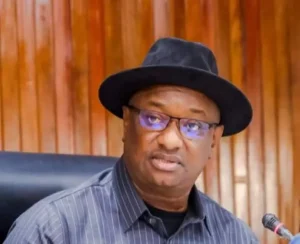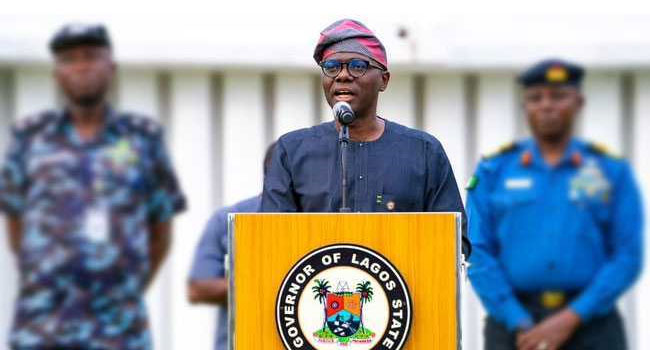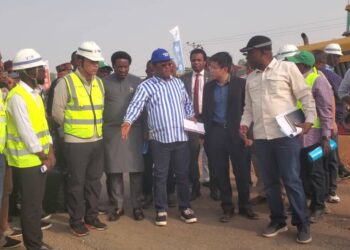The federal government has pledged to continue entrenching fair labour practices and promoting Decent Work Agenda in the nation’s world of work.
President, Muhammadu Buhari made this pledge in his address to Nigerian workers during the 2021 May Day celebration held at Eagle Square, Abuja.
The theme for this year’s May Day celebration is “COVID-19 Pandemic, Social and Economic Crisis: Challenges for Decent Jobs, Social Protection and People’s Welfare”.
Represented by Minister for Labour and Employment Dr Chris Ngige, the president said in spite of the challenges brought about by the COVID-19 pandemic, the federal government remained committed to the maintenance of decent work agenda, which is also a necessary tool for national economic growth.
The president said: “Fair labour practices must be the norm in our world of work,” and emphasised that “decent jobs in our workplaces remain a goal for this administration.”
He described “decent jobs in the workplaces” as reflecting all the goodness in labour administration, and involved opportunities for productive work and fair income, social protection, social dialogue, gender parity and equality, workplace cooperation and cohesion, among others.
“Irrespective of the hitches caused by the pandemic in our efforts and journey to attain the United Nations’ 2030 Sustainable Development Goals and the African Union 2063 Agenda with its embodied seven African aspirations, we Nigerians are committed to inclusive and sustainable development anchored by the decent work agenda to initiate and maintain economic growth,” he further said.
He said in recognition of the importance of decent jobs in the promotion of sustained and inclusive economic growth, full and productive employment, the federal government “had appealed and continues to appeal to all employers of labour to jettison job reduction and is also ensuring poverty alleviation through various safety net programmes to cushion the effects of the COVID-19 pandemic.”
He noted that “as part of securing decent jobs and promoting social protection and people’s welfare, Government would look at the relevant conventions of the International Labour Organisation (ILO) through the newly inaugurated National Labour Advisory Council (NLAC), to extract and ratify what we can adopt to our national practice and environment such as Convention No. 102 on Social Security (Minimum Standards).”
The president said while awaiting the formalisation of the social protection network and people’s welfare, the federal government had put in place some socio-economic policies to alleviate poverty.
“These policies, which are majorly for building small and medium scale businesses, are essentially aimed at supporting the labour force.
“The programmes include, but not limited to “the expansion of the Conditional Cash Transfer for the vulnerable poor from 2.6 million households (13 million persons) to 7.6 million households (about 32 million persons), and COVID-19 Rapid Response Register (RRR) for urban poor which now has 4.8 million households (20 million persons), which also include urban poor/working class.”
There are also the Entrepreneur Support Programme, Artisan Support Fund, Payroll Support Fund for small scale businesses, and Guaranteed Off-take Stimulus Scheme, National Youth Investment Fund (NYIF) for young entrepreneurs of 75 Billion Naira for three years, among others.
Buhari further stated that the Federal Government intended to expand the N-Power programme from the present 500,000 to one million persons and the Central Bank of Nigeria had activated her programme in Agriculture and Manufacturing.
Mr President enjoined Nigerian workers to continue working together with the government for the good of the country.
Also in his own address, Dr Ngige commended the social partners in Nigeria for cooperating with the government to minimise the negative impacts of the COVID-19 pandemic.
Ngige, represented by Minister of State for Labour and Employment, Festus Keyamo, SAN, noted that jobs lost on the anticipated scale and industrial actions were minimal.
He applauded the social partners, particularly workers’ representatives, for embracing social dialogue to reach a new Social Pact in order to tackle the emerging issues due to the pandemic and “forge a way forward for the good of our socio-economic.”
The minister stated that the palliative committee, which the federal government established with the two federations of trade unions to discuss issues arising from the negative economic impact of the pandemic on the nation, had been working to put together palliatives and other safety nets to augment the fallen income of the Nigerian populace during the pandemic, especially in the informal economy.




